Astronomy
-
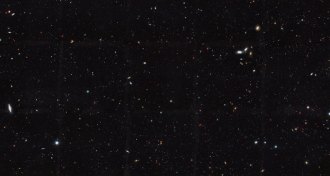 Astronomy
AstronomyCosmic census of galaxies updated to 2 trillion
A new census of the cosmos suggests that there might be 2 trillion galaxies in the observable universe, about 10 times as many as previous estimates.
-
 Science & Society
Science & SocietySometimes failure is the springboard to success
Editor in chief Eva Emerson discusses scientific discoveries that resulted from failures large and small.
By Eva Emerson -
 Physics
PhysicsA metallic odyssey, what’s causing sunspots and more reader feedback
Metallic hydrogen, sunspot formation, salty desalination leftovers and more in reader feedback.
-
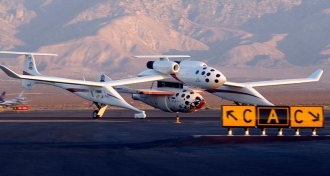 Tech
TechXPRIZE launched new kind of space race, book recounts
'How to Make a Spaceship' chronicles the XPRIZE challenge that helped ignite the private space industry.
By Meghan Rosen -
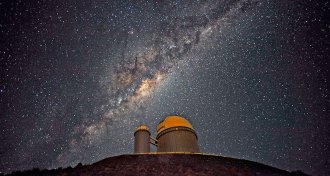 Astronomy
AstronomySolar system sits within major spiral arm of Milky Way
The solar system appears to live in one of the major spiral arms of the Milky Way, not in an offshoot as previously thought.
-
 Astronomy
AstronomySolar system sits within a major spiral arm of the Milky Way
The solar system appears to live in one of the major spiral arms of the Milky Way, not in an offshoot as previously thought.
-
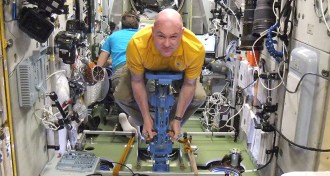 Astronomy
AstronomyOld-school contraptions still work for weighing astronauts
To weigh themselves, astronauts still use technology invented about 50 years ago.
-
 Astronomy
AstronomyAnna Frebel digs a young universe
Astronomer Anna Frebel has discovered record-breaking stars, including the most pristine in the galaxy.
-
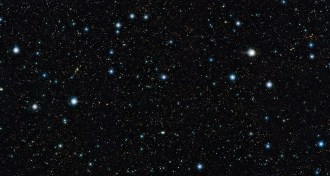 Astronomy
AstronomyThe sun isn’t the only light source behind that summer tan
About 99.999% of the light that creates a suntan comes from the sun; the rest comes from the Big Bang and galaxies throughout the universe.
-
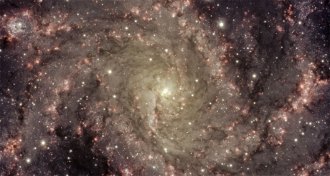 Astronomy
AstronomyVanished star may be first known failed supernova
A star that vanished in another galaxy might be the first confirmed case of a failed supernova — and the birth of a black hole.
-
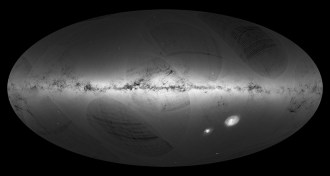 Astronomy
AstronomyGaia mission’s Milky Way map pinpoints locations of billion-plus stars
New map of the galaxy provides unprecedented positions of over 1 billion stars and promises of a detailed 3-D atlas to come.
-
 Astronomy
AstronomyProxima b deserves buzz, even if some didn’t notice
Editor in chief Eva Emerson discusses Earth's newest potentially habitable neighbor.
By Eva Emerson